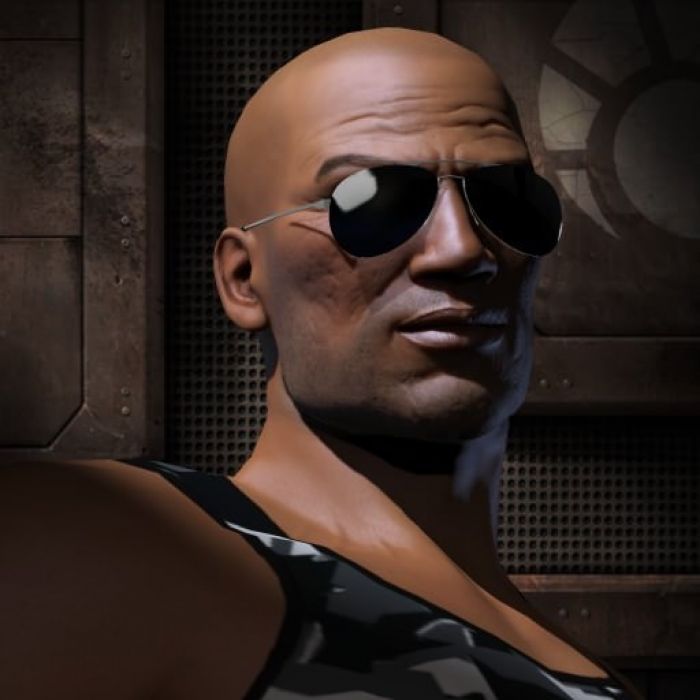Blurring the Lines Between Video Games and Reality May Not Always Be a Bad Thing

In recent years, there has been considerable discussion regarding the deleterious effects of video games. Studies have linking them to various negatives, including increased levels of hostility and aggression, poor sleep and obesity, and even reckless driving. And that’s not even taking into consideration claims by folks like Mark Driscoll that video games are bad from a spiritual perspective. Indeed, it often feels like there’s this tacit understanding, even among gamers, that playing video games is like playing with fire: you need to be really careful, or else you could get burnt… badly.
Which, perhaps, explains why I found this recent CNN article about Marcus Dickinson so fascinating. Dickinson is a hardcore gamer, specifically of EVE Online, a sci-fi MMORPG that requires you to create an avatar, an idealized in-game representation of yourself. Only, Dickinson’s avatar was a far cry from its creator in some significant ways.
When Marcus Dickinson first created his “EVE” character, Roc Wieler, the two had little in common. Roc was a retired colonel from the Minmatar tribes — a stoic, physically imposing disciplinarian. Dickinson was a 230-pound Canadian with an affinity for bacon.
The disparity became crystal clear to Dickinson while attending an EVE Online convention in 2009.
Walking into the convention, he didn’t feel like Roc. He felt like a stereotypical geek, surrounded by other stereotypical geeks.
“We were all just a bunch of pathetic losers,” Dickinson remembers. “We paid good money to fly all the way to Iceland and instead of enjoying Iceland, most of us spent all our time sitting around playing the video game we already played back home.”
“Something snapped inside me, and I realized I wasn’t being true to my brand. Why can’t I be this character? Why can’t I look like this? He acts and talks like me because he is me. I’m the one who gave him life.”
After returning home, Dickinson, inspired by the imaginary character that he created, rebooted his life. He began working out at the gym and living on a very strict diet… all in an attempt to remake himself in the image, so to speak, of his creation. And it’s been working: since beginning his regimen, he’s lost nearly 50 pounds and can dead-lift 450 pounds. What’s more, he’s turned Roc into a brand: he blogs from Roc’s viewpoint, records Roc-inspired music, and sells Roc-inspired paraphernalia. He even tries to live according to a philosophy that might be espoused by Roc, aka “Roc’s Rules.”
As weird as this might sound — and even Dickinson admits that it’s kind of “schizophrenic” — is this, from a more pragmatic standpoint, any different than how many people seek to improve themselves? I would surmise that most people have an idealized vision of themselves in mind that inspires them to hit the gym, live healthier, etc. In Dickinson’s case, his idealized version is simply “fleshed out” a bit more because it happens to be a video game character.
Dickinson’s story reminds me of Darkon, a fascinating and enjoyable documentary about a group of live-action role players. The movie explores the ways in which the players’ in-game characters have affected their real-life selves. In some cases, the effects weren’t great, with some players feeling increased amounts of dissatisfaction and restlessness. However, in other cases, the effects were quite positive. One player explained how commanding forces in the game shaped and honed his managerial skills at work. In one particularly moving scene, a player discussed how entering into an in-game relationship was giving him the courage to finally talk to girls in real life.
Along with the aforementioned negatives, it may be tempting to simply write off video games as little more than escapism, as a way to turn off our brains and disengage from the real world. But as Dickinson’s story — and even Darkon, though it’s not specifically about video games — shows, the truth is a bit more complicated. And as video games grow in their verisimilitude, in their scope and depth, and in their ability to let players craft truly immersive and personal experiences, it’s only going to get more complicated. As a result, the lines between what is “virtual” and what is “real” may blend in some surprising ways.
But Marcus Dickinson might very well tell you that’s not necessarily a bad thing.
This entry was originally published on Christ and Pop Culture on .